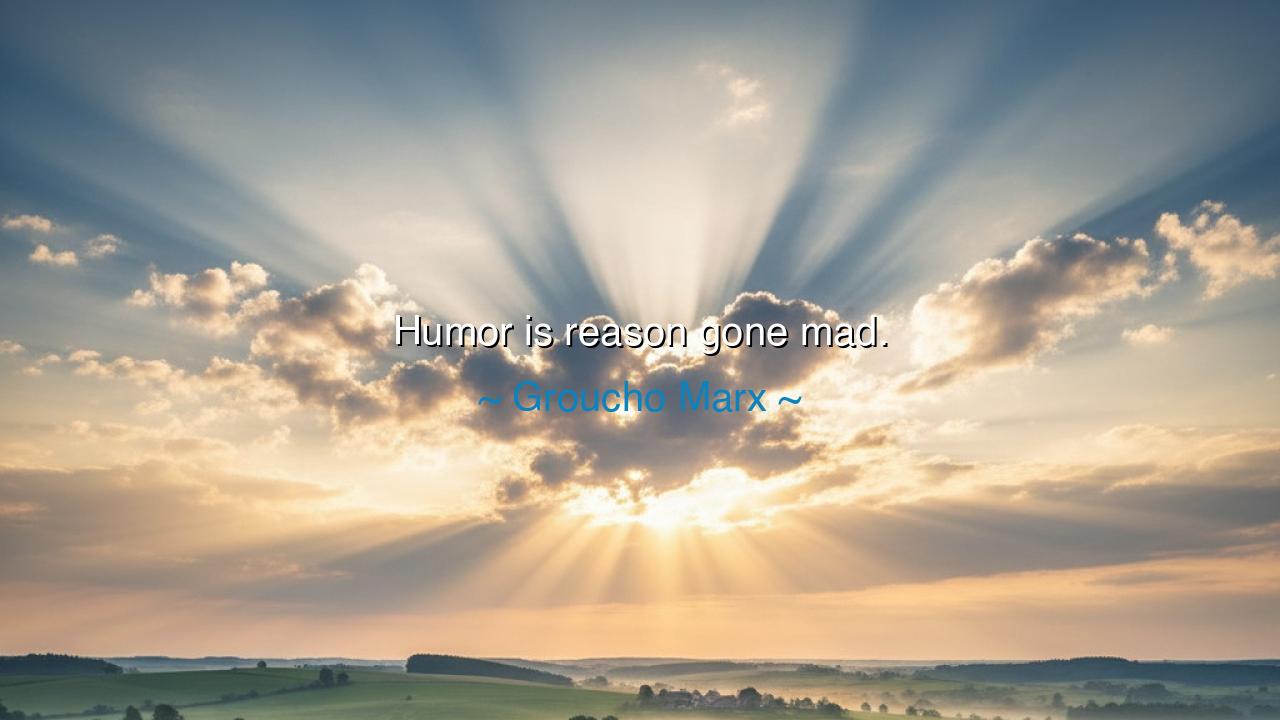
Humor is reason gone mad.






The brilliant trickster of cinema and wit, Groucho Marx, once said: “Humor is reason gone mad.” In this single sentence lies an ancient and paradoxical truth — that humor is both the child of wisdom and the sibling of folly. Groucho, with his painted mustache and quick tongue, understood what philosophers often forget: that reason alone is too rigid to capture the wildness of life, and madness without reason is chaos. True comedy, he taught, is born at the point where the two meet — when the mind, sharp and logical, suddenly takes a joyful leap into the absurd.
Groucho Marx, one of the most iconic comedians of the twentieth century, lived in an age of upheaval — through depression, war, and cynicism — yet he turned pain into play. His humor was not random; it was reason in rebellion, the intellect refusing to drown in despair. When the world became too serious, Groucho made it laugh — not by denying reality, but by twisting it into a shape that revealed its hidden contradictions. He understood that laughter is not the opposite of logic; it is logic taken to its breaking point. It is when truth becomes so intense, so unbearably human, that the mind must either cry or laugh — and the wise choose to laugh.
The ancients, too, spoke of this sacred madness. The philosopher Plato wrote that “serious things cannot be understood without a touch of play,” and Aristotle said that wit is “educated insolence.” These words echo Groucho’s idea that humor springs from reason — but not from the cold, lifeless kind that calculates and condemns. Instead, it is born from living reason, from the awareness of human imperfection. When the rational mind sees the chaos of the world and accepts that it cannot be fully tamed, it bursts into laughter. That laughter, though wild, is pure sanity.
Consider how Charlie Chaplin turned






AAdministratorAdministrator
Welcome, honored guests. Please leave a comment, we will respond soon